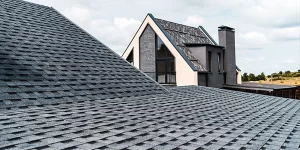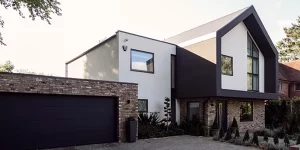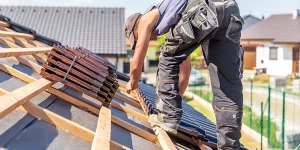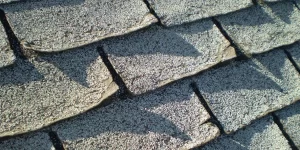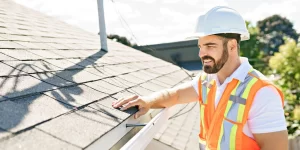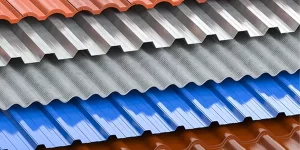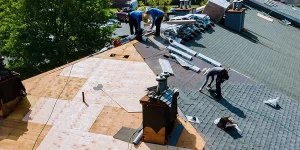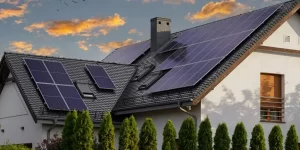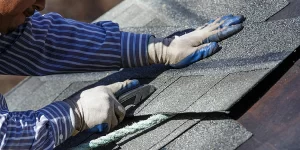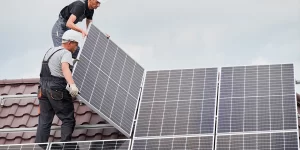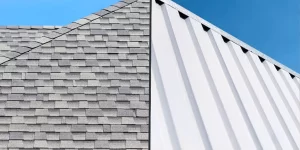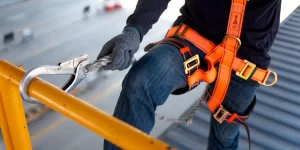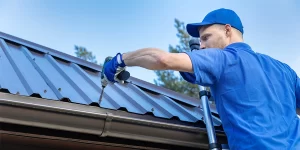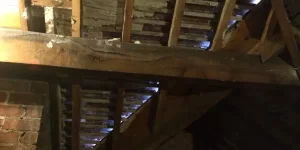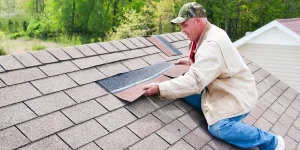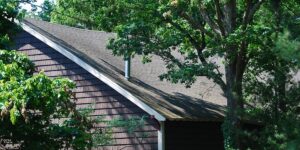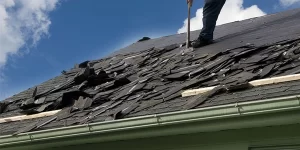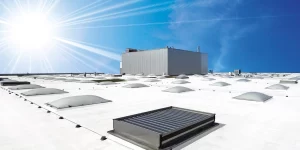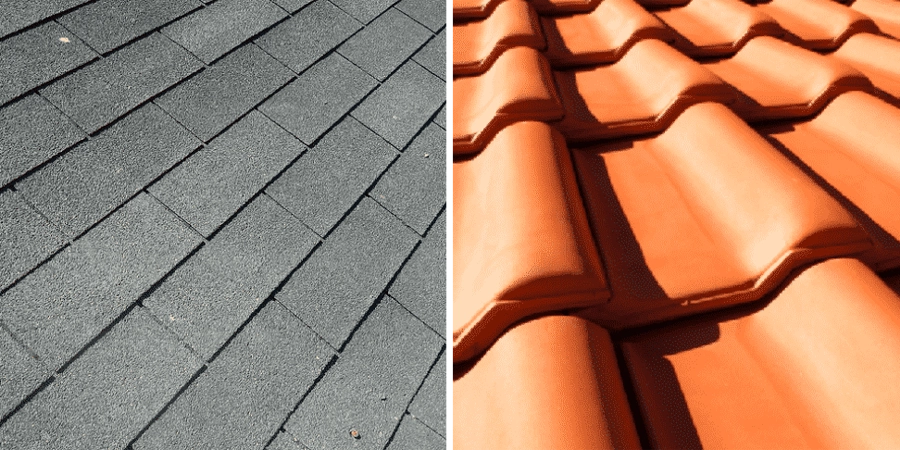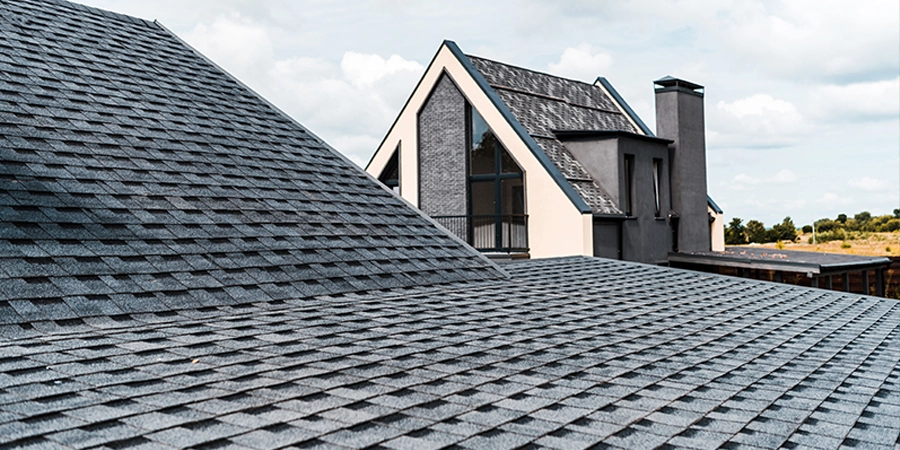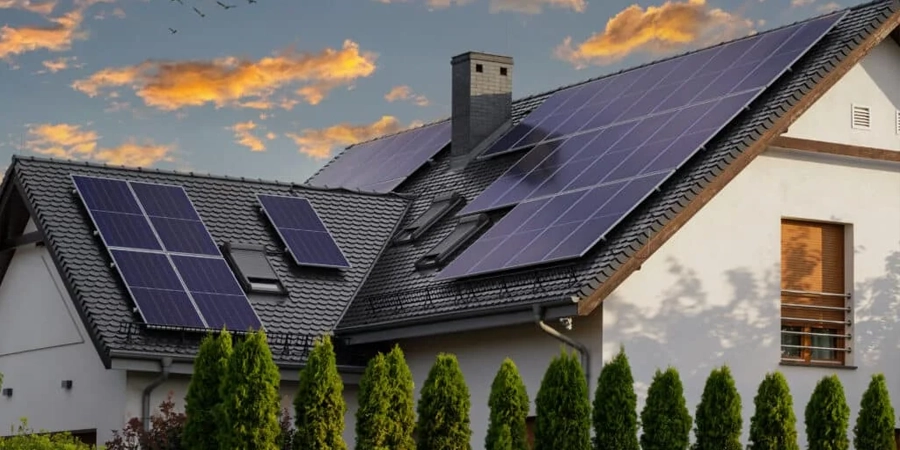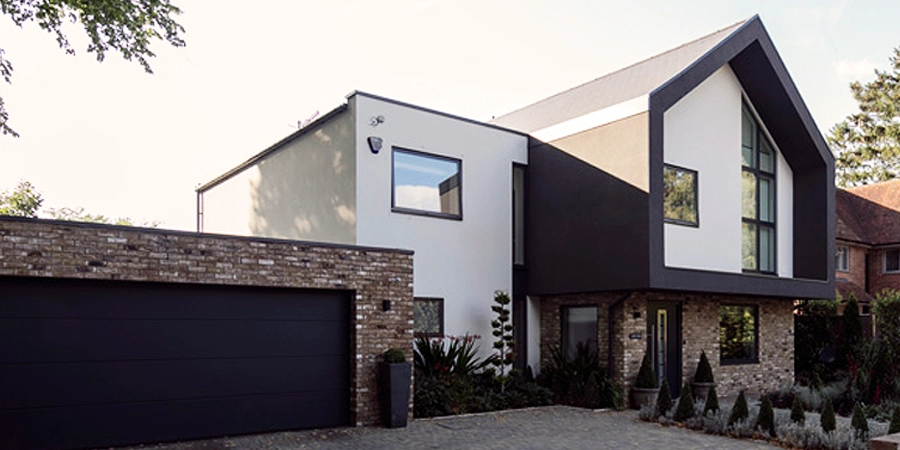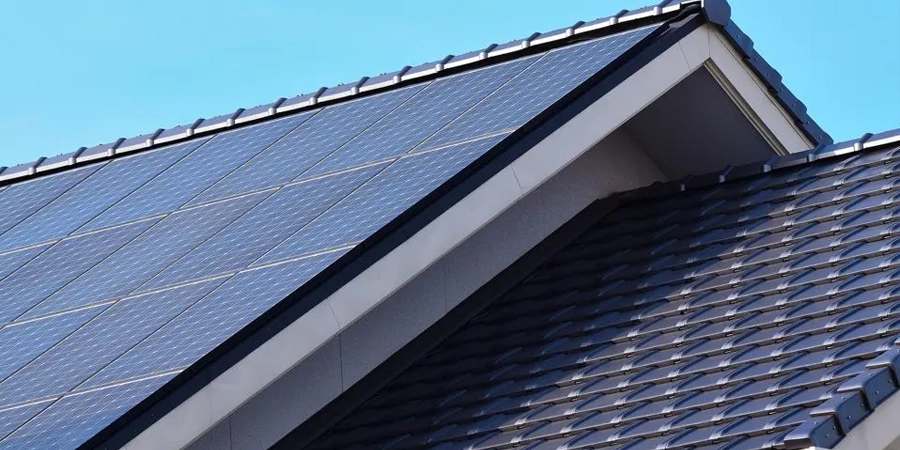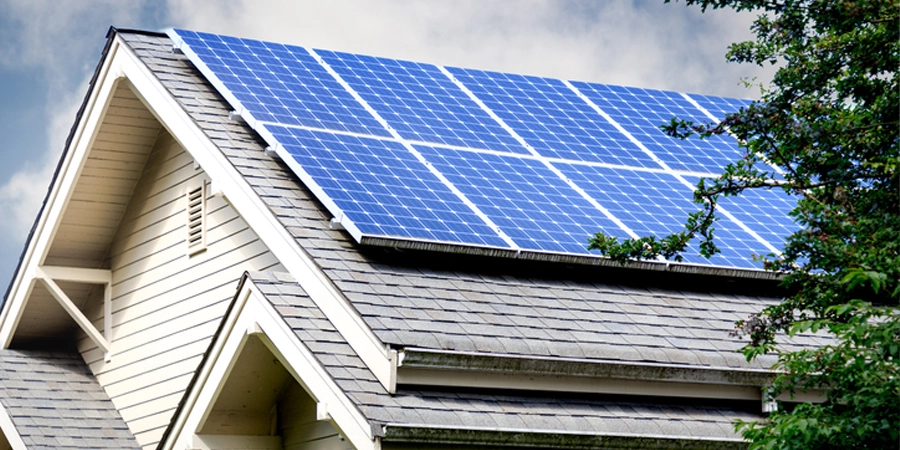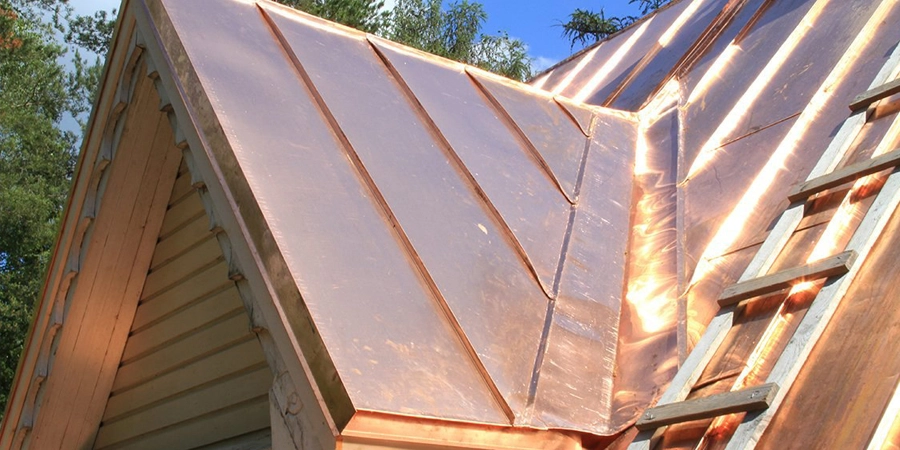Asphalt Shingles vs. Metal Roofing
Major Differences, Pros And Cons
Building a home or re-roofing an existing one involves a crucial decision: choosing the right roofing material. Both metal roofs and asphalt shingles have their merits, and understanding their differences can help you make an informed choice. In this article, we’ll explore the characteristics of each roofing type, their advantages and disadvantages, and provide insights to help homeowners and commercial building owners decide which option suits their needs best.
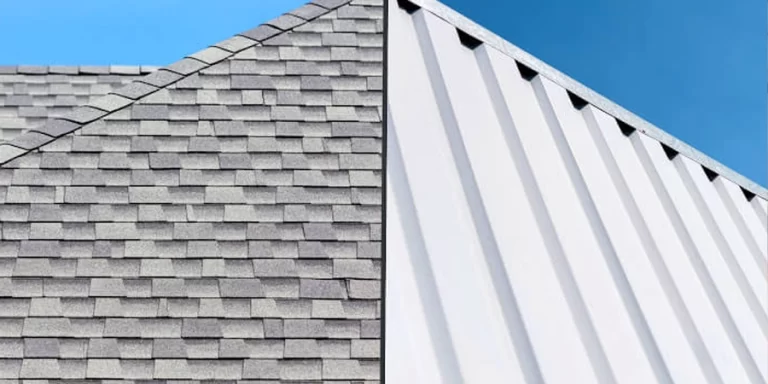
Asphalt Shingles Explained
Asphalt shingles are the most common roofing type, and they come in three varieties: 3-tab, dimensional, and luxury. 3-tab shingles have a straightforward appearance with three tabs, while dimensional shingles offer a more attractive and random pattern. Luxury or premium shingles are larger and imitate the look of slate. While 3-tab shingles were once dominant, dimensional shingles now prevail on most roofs, and luxury shingles come at a higher price.
Pros and Cons of Asphalt Roofing
✔ Is more affordable up-front than most options
✔ Is easier to install, and you may be able to perform minor repairs yourself
✔ Come in a wide variety of style and color options
✘ Requires more frequent maintenance
✘ Is less eco-friendly and insulative
Metal Roofing Explored
The second most popular roofing choice is metal roofing, which comes in two main types: standing-seam and screw-down panels. A standing-seam roof features metal panels locked together at the seams, allowing for expansion and contraction with temperature changes. On the other hand, screw-down panels are directly screwed to the roof, making them less suitable for heated spaces like homes and offices due to their limited expansion capability.
Pros and Cons of Metal Roofing
✔ Can last 40-70 years
✔ Requires little maintenance if installed correctly
✔ Is more eco-friendly and energy-efficient
✘ Costs more than many other options
✘ Requires more labor to install
Comparison: Metal Roofing Vs. Asphalt Shingles
1. Cost & Longevity
When it comes to comparing roofing costs, it’s essential to consider the longevity of the materials. While metal roofs may have a higher upfront cost, they offer a remarkable return on investment. One of the key advantages of metal roofs is their exceptional durability, often backed by 30–50-year warranties. In reality, they frequently outlast their warranties, standing strong for an impressive 40–70 years. However, it’s crucial to acknowledge that metal roofs are not entirely immune to damage; they can be vulnerable to denting.
While metal roofs can withstand a lot, a fallen tree branch or a severe hailstorm could potentially cause dents. In such cases, water leakage becomes a significant concern, and a partial roof replacement might be necessary to maintain the roof’s integrity. Despite this potential vulnerability, metal roofs remain a top choice for homeowners and commercial building owners looking for a long-lasting roofing solution.
Asphalt shingles, on the other hand, come with warranties that typically range from 15 to 30 years. While they offer a more budget-friendly option, they are more susceptible to dampness. Pooling water, heavy rain, or prolonged ice can lead to cracks and create an environment conducive to algae and fungus growth on the shingles. Additionally, asphalt shingles may experience cracking, especially in climates with significant temperature fluctuations between day and night, which ultimately shortens their lifespan.
Considering their vulnerabilities, asphalt shingles might require more frequent inspections and maintenance to prevent premature deterioration. When choosing asphalt shingles, it’s essential to factor in the climate and weather conditions in your area to determine their suitability for your property.
The cost difference between metal roofing and asphalt shingles is undeniable. Metal panels, combined with the higher labor and skill required for installation, contribute to metal roofs being priced at more than twice the cost of asphalt roofs per square foot. For homeowners or commercial building owners on a tight budget, asphalt shingles undoubtedly present an attractive and affordable option.
However, for those who can afford the initial investment, a metal roof offers far more than just durability. It provides peace of mind for decades to come, making it a sound long-term investment that pays off with its extended lifespan and minimal maintenance requirements.
The choice between metal roofing and asphalt shingles comes down to your budget, desired longevity, and tolerance for maintenance. If you’re looking for a cost-effective option and don’t mind regular upkeep, asphalt shingles can be a suitable choice. However, if you seek a roofing solution that can withstand the test of time and offer excellent protection with minimal maintenance, a metal roof is a wise investment that will serve you well for years to come. So, when making your decision, consider the long-lasting benefits that metal roofs have to offer for both homeowners and commercial building owners.
2. Maintenance
Proper roof maintenance is essential for the longevity and performance of any roofing system, be it metal or asphalt shingles. However, the frequency and expense of maintenance can vary depending on factors such as climate and the quality of installation. Let’s delve deeper into how these factors affect the maintenance needs of each roofing type.
Metal Roof Maintenance
When it comes to maintenance, metal roofs generally have an advantage over asphalt shingles. The durability and resistance to moisture of metal make them less vulnerable to common roofing issues caused by water damage. Properly installed metal roofs can withstand harsh weather conditions and have a longer lifespan with minimal upkeep.
One of the main benefits of metal roofs is their ability to shed water and resist leaks. With their interlocking seam design, metal panels create a robust barrier against moisture infiltration. Regular inspections are still essential to catch any potential issues early on, but in general, metal roofs tend to require less maintenance.
Asphalt Shingle Maintenance
While asphalt shingles are a popular and cost-effective roofing choice, they are more susceptible to certain maintenance issues compared to metal roofs. The granular upper surface of asphalt shingles can deteriorate over time, making them prone to damage from weather elements like hail, heavy rain, and UV radiation.
With exposure to extreme weather conditions, asphalt shingles may crack, curl, or lose their protective granules, leading to potential leaks and water infiltration. Regular inspections and maintenance are crucial to identify and address these issues promptly.
Regular Roof Inspections
Roofing experts recommend conducting thorough roof inspections at least once a year, regardless of the roofing material. These inspections should include checking for debris buildup, damaged shingles or panels, and any signs of wear and tear.
For asphalt shingle roofs, specific attention should be given to damaged or missing shingles, as well as issues like granule loss and curling edges. Addressing these problems early can prevent more extensive damage and costly repairs in the future.
Climate’s Impact on Roof Maintenance
Climate plays a significant role in the maintenance needs of both metal and asphalt shingle roofs. Regions with high precipitation, humidity, and severe weather may pose greater challenges to roof integrity.
In areas prone to heavy rain or snow, asphalt shingle roofs may experience water penetration and damage if not adequately maintained. On the other hand, metal roofs’ ability to shed water efficiently can help them withstand these conditions more effectively.
In extremely hot climates, asphalt shingles may age faster and become more susceptible to sun-related damage. Metal roofs, with their reflective properties, can help keep the building cooler and potentially reduce cooling costs.
Regular roof maintenance is crucial for ensuring the longevity and performance of any roofing system, whether it’s metal or asphalt shingles. Properly installed metal roofs generally require less maintenance due to their durability and resistance to moisture. However, asphalt shingle roofs can still be reliable with regular inspections and prompt repairs.
Regardless of the roofing material, annual roof inspections by professionals are highly recommended. Addressing any issues early on can prevent more extensive damage and increase the overall lifespan of the roof. By understanding the maintenance needs of each roofing type and factoring in the climate of your region, you can make an informed decision on the best roofing material for your home or commercial building. Remember, a well-maintained roof will provide long-lasting protection and peace of mind for years to come.
3. Warranty Options
When it comes to warranties, both asphalt shingles and metal roofs have their respective offerings. Let’s take a closer look at the warranty options for each roofing type to help you make an informed decision for your home or commercial building.
Asphalt Shingles Warranty
Asphalt shingles typically come with warranties that cover the materials used in the roofing system. For instance, dimensional shingles often boast a 30-year warranty, providing homeowners and building owners with peace of mind for several decades. However, it’s essential to understand that the warranty only applies to the materials themselves and does not encompass the workmanship during installation.
Enhanced Warranty with One Manufacturer
Here’s a valuable tip for those seeking even more extensive coverage for their asphalt shingle roof. If you opt to use all components from one single manufacturer, you might be eligible for an enhanced warranty. By sticking to one trusted manufacturer for all the roofing materials, you could enjoy an extended warranty period of up to 50 years. This enhanced coverage provides added protection and reassurance against potential defects or issues that may arise over the years.
Metal Roof Panels Warranty
On the other hand, metal roof panels come with a different type of warranty, typically centered around the protective coating applied to the metal surface. This coating serves to protect the panels from various environmental factors, such as weathering, corrosion, and UV rays. The paint warranty for metal roof panels typically spans around 30 years.
It’s crucial to understand the distinction between warranties for asphalt shingles and metal roofs. While asphalt shingle warranties focus on the materials themselves and can be enhanced through single-manufacturer usage, metal roof warranties revolve around the longevity and performance of the paint coating.
Keep in mind that warranties play a significant role in safeguarding your investment and ensuring that your roof remains in optimal condition throughout its lifespan. However, warranties alone may not cover all potential issues, making regular maintenance and inspections a vital aspect of preserving the integrity of your roofing system.
When choosing between asphalt shingles and metal roofing, consider the warranty options available and their respective coverage periods. Additionally, look for reputable manufacturers and contractors who stand behind their products and workmanship. By making an informed decision and investing in a reliable roofing system, you can rest assured that your home or commercial building will be protected for years to come.
Choosing the Best Roofing Materials
Choosing the most suitable roofing material depends on various factors, such as budget, maintenance preferences, climate, and environmental impact. If you have the means, investing in a high-quality metal roof can offer both cosmetic and practical benefits. However, a decent-quality asphalt shingle roof can be cost-effective and reliable for many homeowners.
Metal roofs and asphalt shingles have unique advantages and are suitable for different situations. Consider your needs and consult a reputable roofing contractor to make the best decision for your home or commercial building. Remember, a well-chosen roof will provide protection and peace of mind for years.

